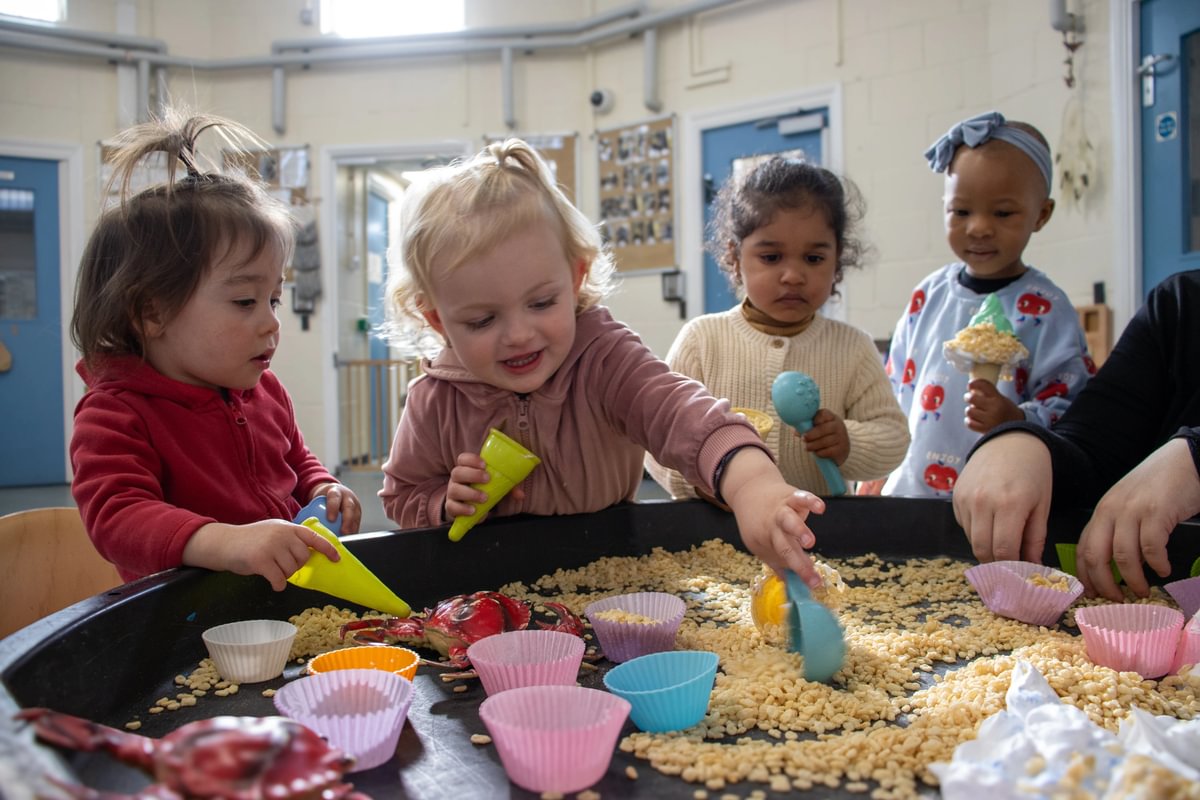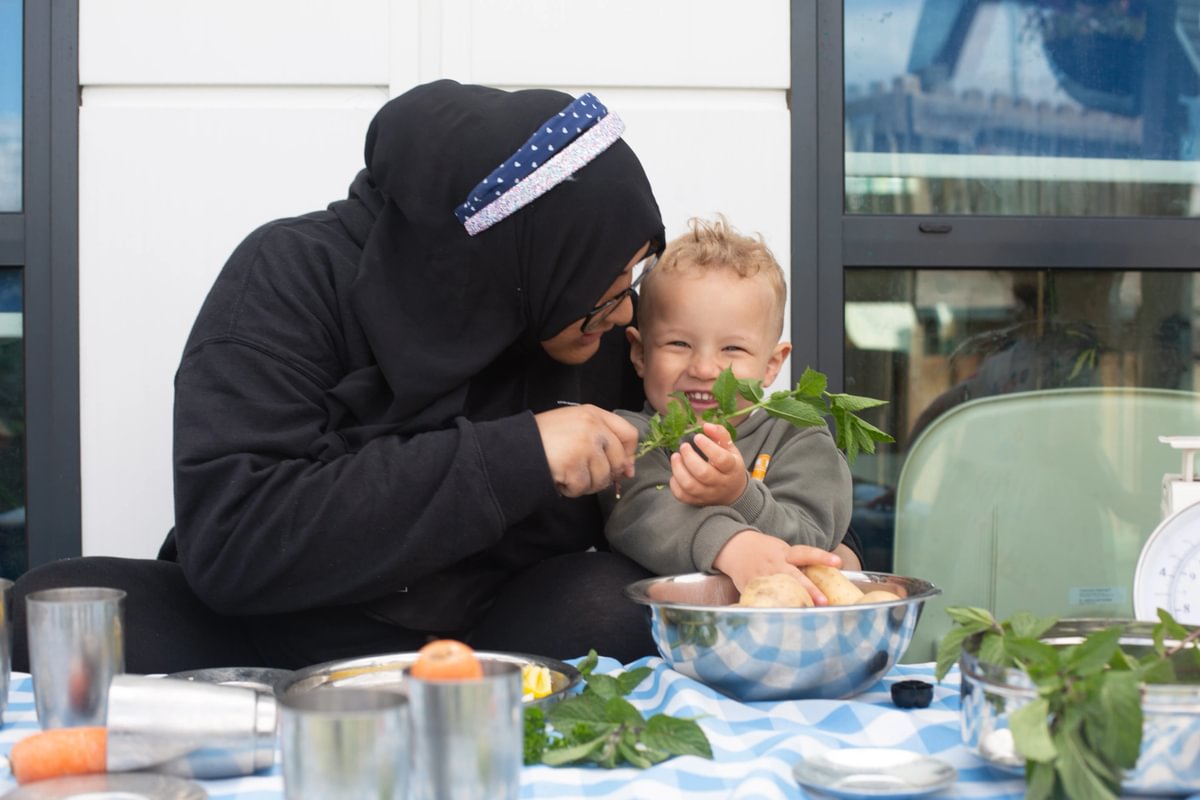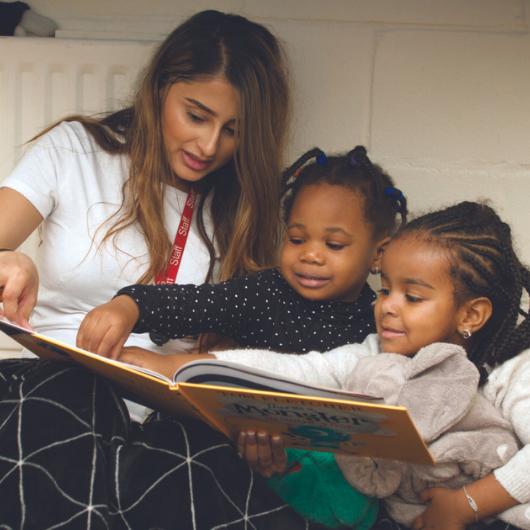
A Conversation with Ofsted: What we learned at the London OBC
On the 7th April, we held the London OBC and here is a summary for those of you who could not attend. We are trying something new,…
August 21st 2023
At the annual Adventures with Alice Pedagogy and Play Residential, I listened to Suzanne Zeedyck speak passionately about the importance of connecting with babies. In particular, helping parents and Early Years staff understand the importance of this connection.
So, I revisited the State of Health Visiting UK Survey Report from January 2023 because when health visitors work with their Early Years colleagues in all settings, it provides a huge opportunity for early intervention thereby limiting the risk of bonding and developmental issues escalating.
There was a time when nearly all families had a health visitor through their universal reach. I remember knowing the local health visitors who would pop into the nursery and have a chat, maybe observe an issue of concern, reassure staff or meet families in the safety of the nursery. But that changed a long, long time ago.
In England, only 3% of health visitors provide all families with continuity of health visiting.
Yet, that is a real concern in our post Covid world where we are seeing widening health inequality, escalating parental stress and mental health problems and many children at more serious safeguarding risk especially those children from the more vulnerable families.
Did you know that one in five children in England are missing out on vital health and development reviews and only 54% of health visitors in England are able to deliver the six-to-eight-week post-natal review to all families and 15% deliver the 9-to-12-month review to all families.
The statistics are a real cause for alarm. The State of Health Visiting UK report was based on 1323 responses from those working in Health Visiting between September and November 2022. Here are some scary stats:
91% of health visitors reported an increase in poverty affecting families.
91% of health visitors reported in increase in families needing food banks.
83% of health visitors reported an increase in perinatal mental health.
75% of health visitors reported an increase in domestic abuse.
47% of health visitors reported an increase in families skipping meals as a result of the cost-of-living crisis.
56% of health visitors reported an increase in homelessness and asylum seeking.
84% of health visitors reported an increase in children with speech, language and communication delay.
76% of health visitors reported increase in child behaviour problems.
65% of health visitors reported an increase in children with autism are signs of autism.
48% of health visitors reported an increase in child development. Problems.
46% of health visitors reported an increase in children with infant and child mental health problems.
60% of health visitors reported further increases in child safeguarding over the past 12 months.
85% of health visitors was reported that there are not enough health visitors.
86% of health visitors reported there is not enough capacity in other services to pick up onward referrals.
64% of health visitors reported that prioritising the most vulnerable safeguarding leaves little or no time for prevention or early intervention work.
35% of health visitors recognise that service was inaccessible for some families and this created a barrier
78% of health visitors in the UK stated that their stress levels had increased in the last 12 months.
73% of health visitors in the UK stated there are not enough filled student health visitor places to maintain their health visiting workforce supply needs.
69% of health visitors are working longer hours and 62% feel demotivated.
37% of health visitors feel confident that they are providing a good or outstanding service, that they can adequately safeguard children.
6% of health visitors work, with the recommended average ratio of 250 children per health visitor and 28% have more than 750 children.
48% of health visitors in England intend to leave the profession in the next five years. There is an estimated shortfall of 5000 health visitors in England.
Because we cannot grow a strong society if we fail our children. We need a plan not just for health visiting but to ensure we are doing the right things for our children. They are the little backbone of our society.

On the 7th April, we held the London OBC and here is a summary for those of you who could not attend. We are trying something new,…

The London OBC is coming on the 8th April 2025 We will be hosting it at Bain where we can take up to 100 people in person. This time…

Launching the Reading Rights Summit in Liverpool Last week, Booktrust (where I proudly serve as a Trustee) hosted the Reading Rights Summit. We were joined by special guests, the…